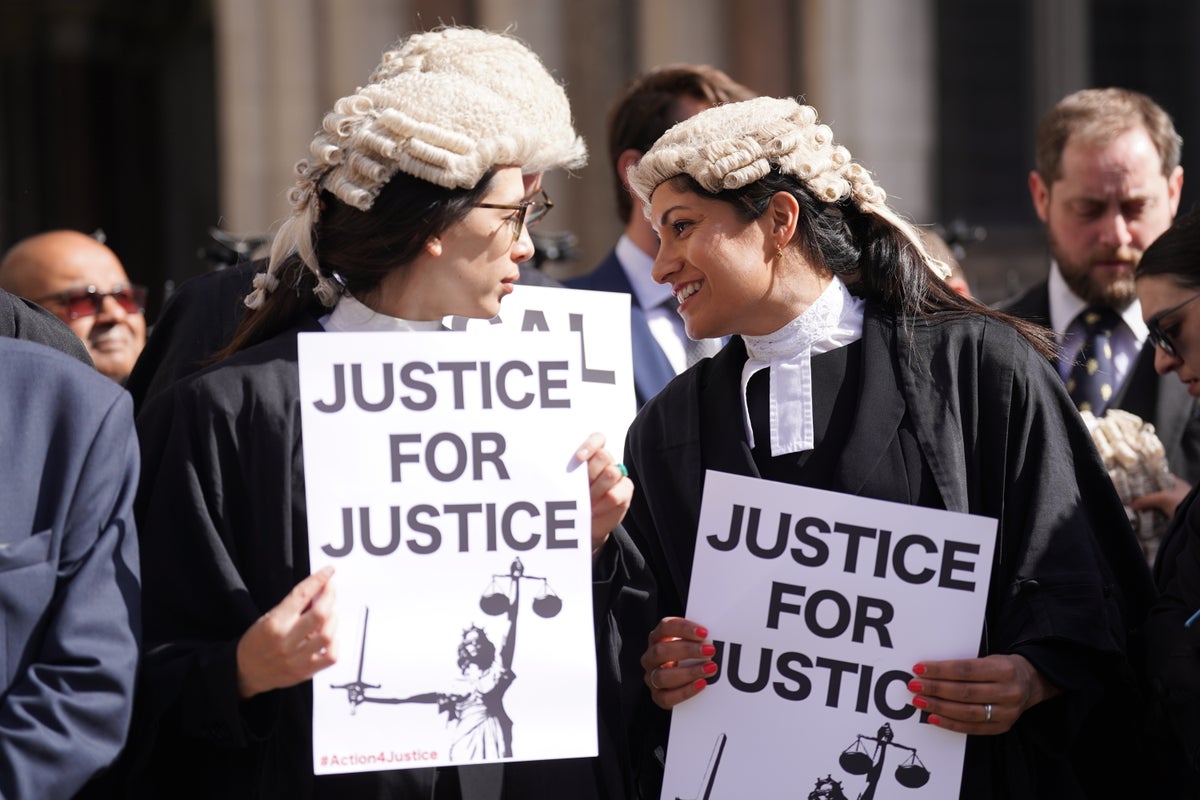
Barristers have walked out for a fifth week as industrial action continues at courts around the country.
Criminal cases faced further disruption as the five-day strike by defence barristers went ahead.
Only one trial was sitting with a jury at the Old Bailey in London on Monday.
The Criminal Bar Association (CBA) action is part of a dispute over conditions and Government-set fees for legal aid advocacy work.
Criminal barristers are due to receive a 15% fee rise from the end of September, meaning they will earn £7,000 more per year.
But there has been anger that the proposed pay rise will not be made effective immediately and will only apply to new cases, not those already sitting in the backlog waiting to be dealt with by courts.
The Ministry of Justice (MoJ) previously said the strike was “forcing victims to wait for justice, despite a generous £7,000 pay rise for the typical criminal barrister” and urged barristers to “put victims first”.
The Government department claimed it had “repeatedly explained” to the CBA that backdating pay would require a “fundamental change” in how fees are paid, adding: “That reform would cost a disproportionate amount of taxpayers’ money and would take longer to implement, meaning barristers would have to wait longer for payment.”
The CBA is carrying out strikes on alternate weeks, with no end date, with the action to remain under review and subject to the Government’s response.
The next strike will take place from August 15.







